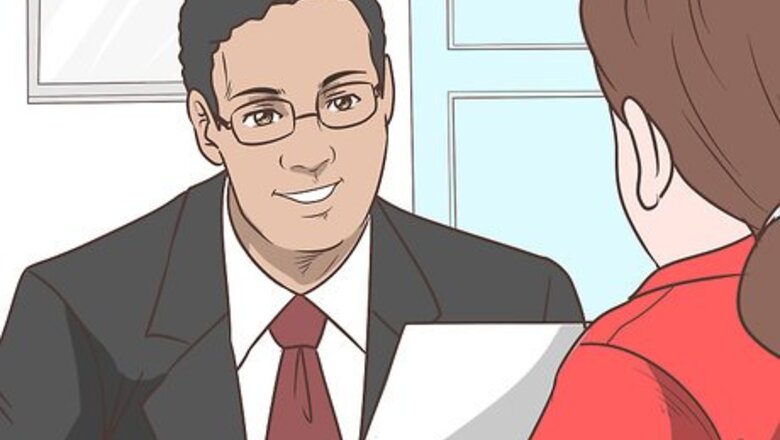
views
Seeking Professional Help
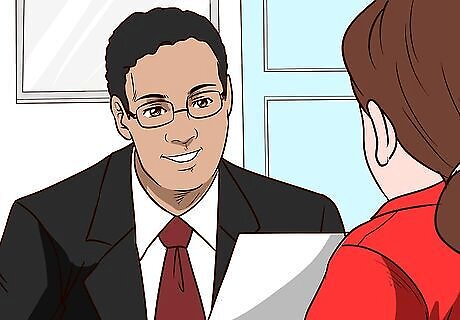
Talk to a therapist. Attending sessions with a professional counselor or therapist may help with calming down the anxiety that led to OCD. Rituals associated with OCD are often used to calm the person down. A therapist may be able to provide you with techniques that can quell the anxieties. Ask friends and family members for the name of a therapist they trust. Look online for recommendations, as well.
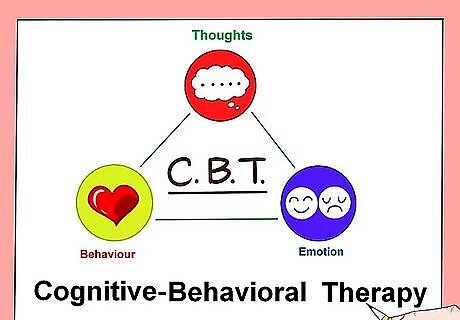
Consider cognitive behavioral therapy. Undergo cognitive behavioral therapy or CBT, if your therapist believes it is a good idea. Over time, you may learn new ways to respond to the triggers. With CBT, your therapist will help you learn new ways to handle these tasks in your life. As you progress, these will gradually become more difficult. It can be helpful to include family or close friends in your treatment. They can help you practice your exposure and provide you with support and encouragement.
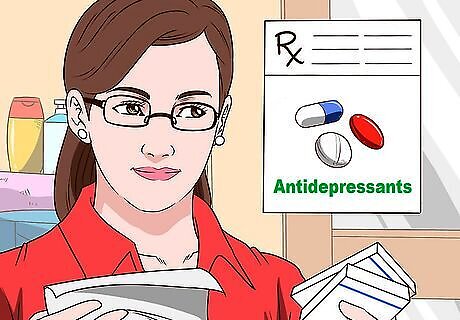
Take medication. OCD is often helped by the use of medication. Typically, therapists prescribe antidepressants to help calm the fears and feelings that are associated with OCD. Therapists may also use psychiatric medications to help some patients. The therapist may prescribe an antidepressant. Be patient, as it can take some trial and error to find the right medication and dose. Medications may also cause unpleasant side effects like nausea, decreased sexual drive, or weight gain. Talk to your doctor to decide which, if any, medication is right for you.
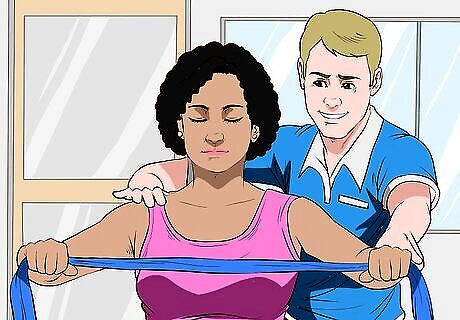
Enter a treatment facility. Consider staying at a treatment facility if your symptoms are severe or outpatient therapy isn’t working. Centers offer treatment and support at all times of day and night. This is helpful when you are unable to control your symptoms and can’t function during your daily life. Talk to your therapist if you feel this would help. They may be able to refer you to a facility and help you get admitted. Don't just depend on your provider to do the legwork. Research treatment centers to determine which is right for your case.
Taking Care of Your Body and Mind
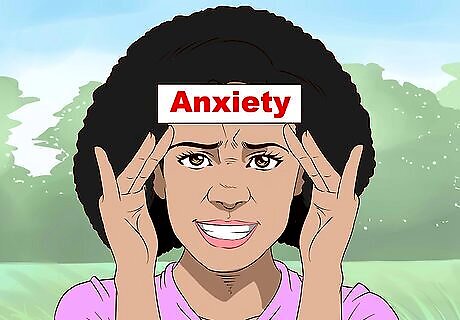
Face the anxiety. A common theory in the medical world regarding OCD is to not run away from the anxiety, but to face it. Instead of trying to escape your thoughts, confront them. Doing so may help you understand the underlying cause of them, which may ultimately force them to go away. Write down your thoughts. Getting them out in the open may get them out of your mind. Your notes can also help in your treatment process. Try not to prevent the thoughts from coming into your head. The more you try to keep them away the more likely they are to return, often making the fear worse over time.
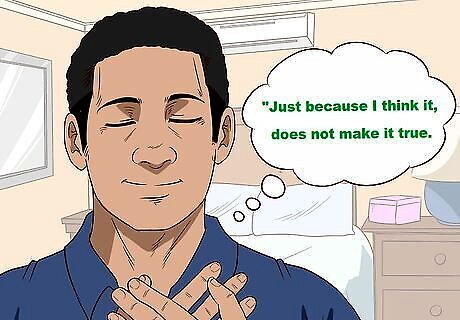
Accept the thoughts. Simply accepting the fact that you’re going to have these anxiety-ridden thoughts can actually stop the anxiety that comes with the idea that you’re going to experience these thoughts. The key is to know that you don’t have the accept the feared outcome of the thoughts. Remind yourself that you aren’t battling the catastrophic events that you are afraid of, you’re just battling the thoughts. Tell yourself that every thought you’ve ever experienced in your life has not come to fruition. Therefore, the chances of these thoughts actually occurring are slim to none. Say, "Just because I think it does not make it true." Repeat this whenever your thoughts overwhelm you with fear or worry.
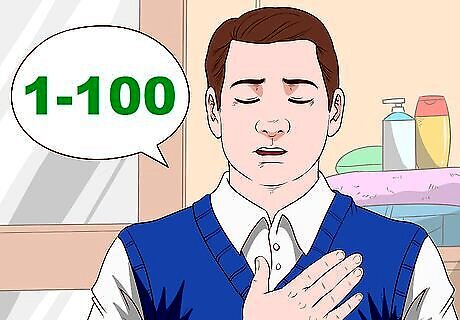
Resist giving into the rituals. People with OCD typically engage in rituals to help themselves feel better about the anxiety they are experiencing. They often feel their fears and anxieties calmed within a few moments. Trying to just get through the feeling of anxiety, instead of performing rituals to get through them, may eventually help the OCD improve. This type of treatment is used in exposure and response prevention therapy. It takes a lot of psychological effort, but is often effective with the help of a therapist. You might practice deep breathing when you feel strong compulsions. It may also help to count aloud to 100. Practice getting further and further along the number line before you give in to the compulsion.
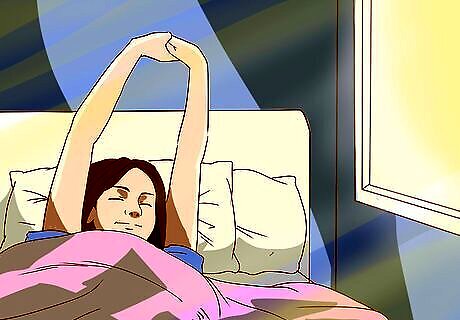
Sleep enough, eat well, and get plenty of exercise. Part of OCD recovery is taking care of yourself physically and mentally. Exercising every day may help release some of the tension and anxiety you feel. Getting enough sleep can prevent some of the triggers you may experience. It can also make you feel better and give you a clearer mind. Stress reduction is also important in managing symptoms for most people with OCD. Eating a healthy diet is also essential when trying to become physically and mentally healthy. Talk to your doctor about any vitamins or supplements they think you may also need. Make time for daily relaxation, as well. Therapy and practice with exposure are important, but can be emotionally draining. Take time to rest, recharge, and put yourself at ease.
Getting Support
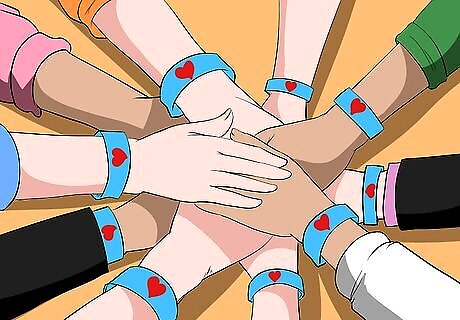
Join a support group. Attend a support group created for people with OCD. Talking to others about what you experience can help you feel like you’re not alone in this. It may also give you suggestions on how you can combat the condition. Talk to your therapist about any support groups in the area that they may recommend. You may also consider attending one online.
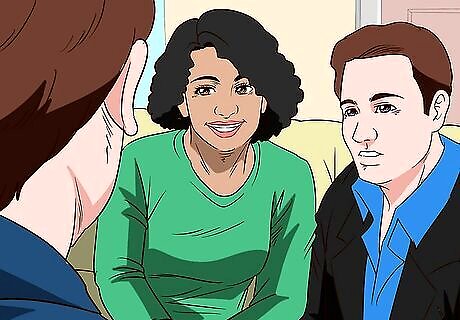
Talk to friends and family. Talk to people you trust when you are having difficulty coping with your symptoms. Confide in someone you trust and who won’t judge you. They may be able to offer insight when you are feeling scared and help you through it. You might say to a friend, "I am late for class a lot because I have to do these rituals before I leave my apartment. I just wanted you to know what I'm dealing with." Your friends and family can also help hold you accountable for doing exposures, and can provide you with support and encouragement when you face challenges.
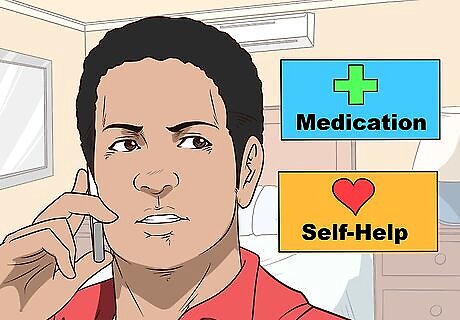
Do the work. Your therapist may give you assignments to do while you are at home. Make sure you do them, as they can help in your recovery. Skipping the work could hinder your progress. Consistency and persistence are critical in recovery for OCD, so it is important to tackle something that challenges you every day. Even if the homework is difficult or you feel that it isn’t helpful, it is still important to finish it. It is likely working in ways you aren’t aware of.
















Comments
0 comment